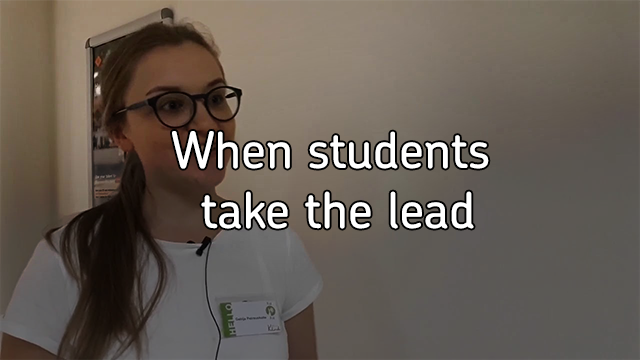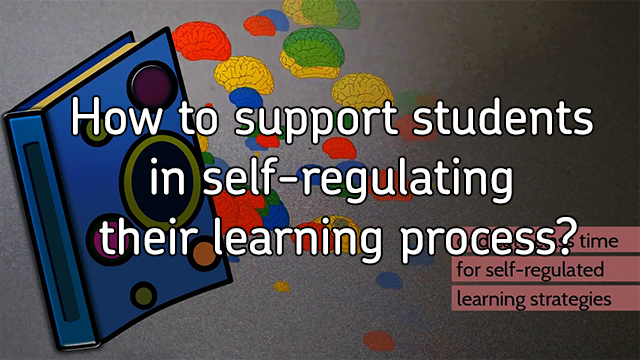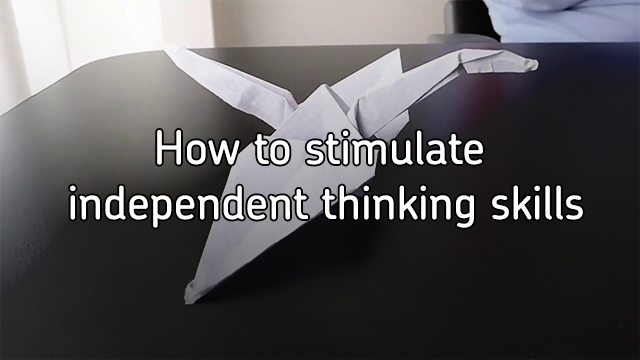How to stimulate independent thinking
Be inspired to assess the extraordinary. Talented students can show a high level of creativity and surprise you with their extraordinary solutions.
You can enable subtitles by pressing the CC icon on the video
Even though those extraordinary solutions make the assessment of the students’ work more difficult, teachers should actively support their students’ creativity and be open-minded about everything they are supposed to assess. Depending on the honors program and the subject the students are involved in, different ways of assessing might be suitable. In any case, creativity and independent thinking on the student level also demands creativity on the teacher level.
Discussing standards with students and colleagues as well as opening assessment methods to different solutions can be a first step to valuing creative and independent thinking among students.
Questions for reflection
1. Think about the standards used for assessing students’ work – do you limit the students’ independent thinking skills? How do you react to different solutions, or to assignments handed in differently than expected?
2. Do you foster your students’ independent thinking skills by offering freedom in solving tasks?
3. In which ways could you enhance the independent thinking skills in your class?
Kuntze, S., Aizikovitsh-Udi, E. & Clarke, D. Hybrid task design: connecting learning opportunities related to critical thinking and statistical thinking. ZDM Mathematics Education 49, 923–935 (2017). https://doi.org/10.1007/s11858-017-0874-4
Kopzhassarova, U.; Akbayeva, G.; Eskazinova, Z.; Belgibayeva, G.; Tazhikeyeva, A. (2016). Enhancement of Students’ Independent Learning Through Their Critical Thinking Skills Development. International Journal of Environmental &Science Education 11 (18), 11585-11592. https://files.eric.ed.gov/fulltext/EJ1121248.pdf
Olszewski-Kubilius, P.; Subotnik, R. F.; Davis, L. C., Worrell, F. C. (2019). Benchmarking Psychosocial Skills Important for Talent Development. New Directions for Child and Adolescent Development. Special Issue: The Future of Research in Talent Development: Promising Trends, Evidence, and Implications of Innovative Scholarship for Policy and Practice. 2019(168) 161-176. https://doi.org/10.1002/cad.20318
Saputri, A. C., Sajidan, Rinanto, Y., Afandi, & Prasetyanti, N. M. (2019). Improving Students’ Critical Thinking Skills in Cell-Metabolism Learning Using Stimulating Higher Order Thinking Skills Model. International Journal of Instruction, 12(1), 327-342. https://files.eric.ed.gov/fulltext/EJ1201357.pdf
International Centre of the Study of Giftedness at the Westphalian Wilhelms-University of Münster
Vivian Marielle van Gerven – Teacher Educational Sciences
Judith Wenker – Student of Teacher Training (subjects History & English)
Carolin Böckers – Student of Teacher Training (subjects English & Mathematics)




